Lasting Impressions
July 8th to September 17th, 2022
Toni Onley Gallery
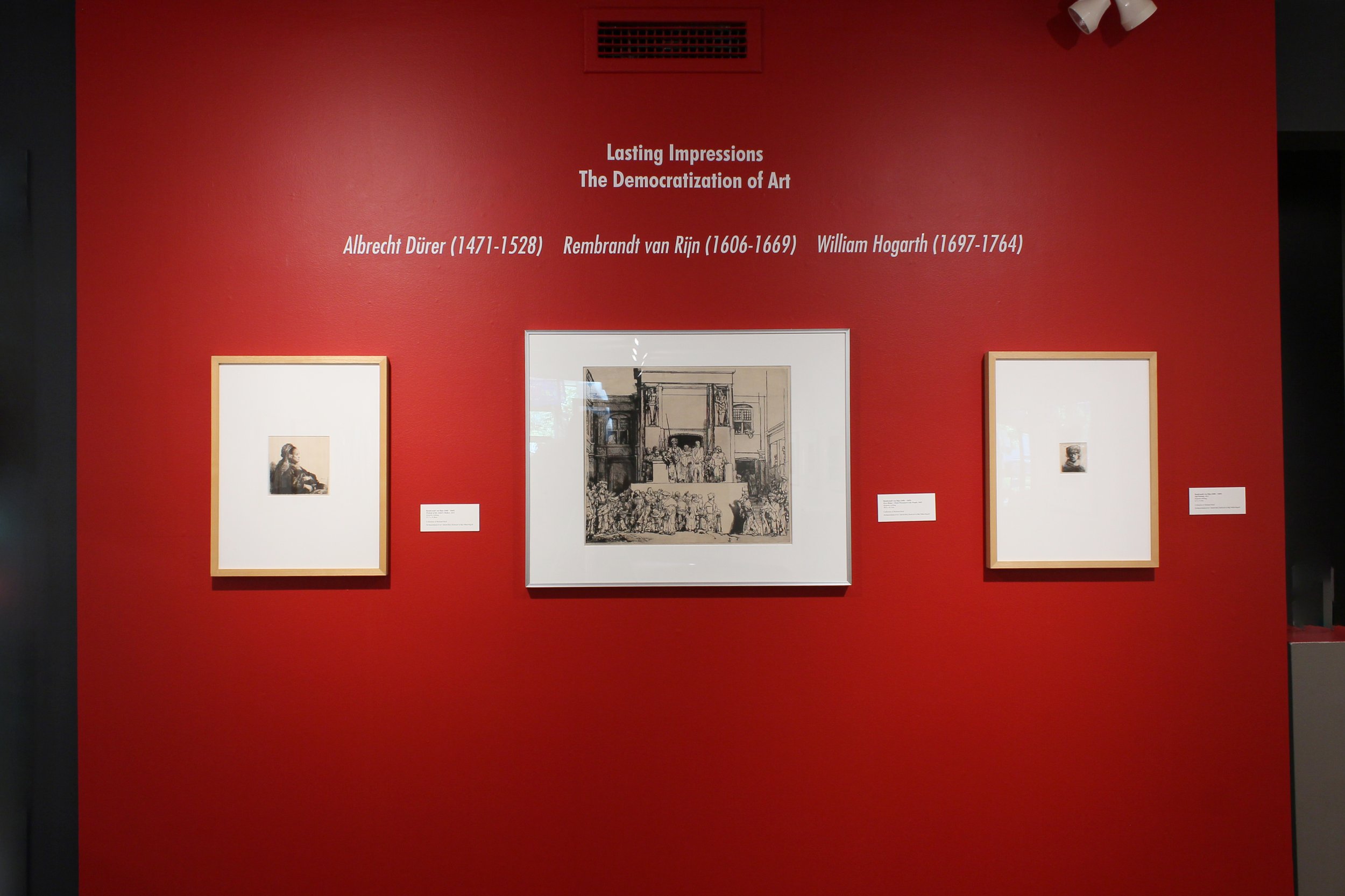
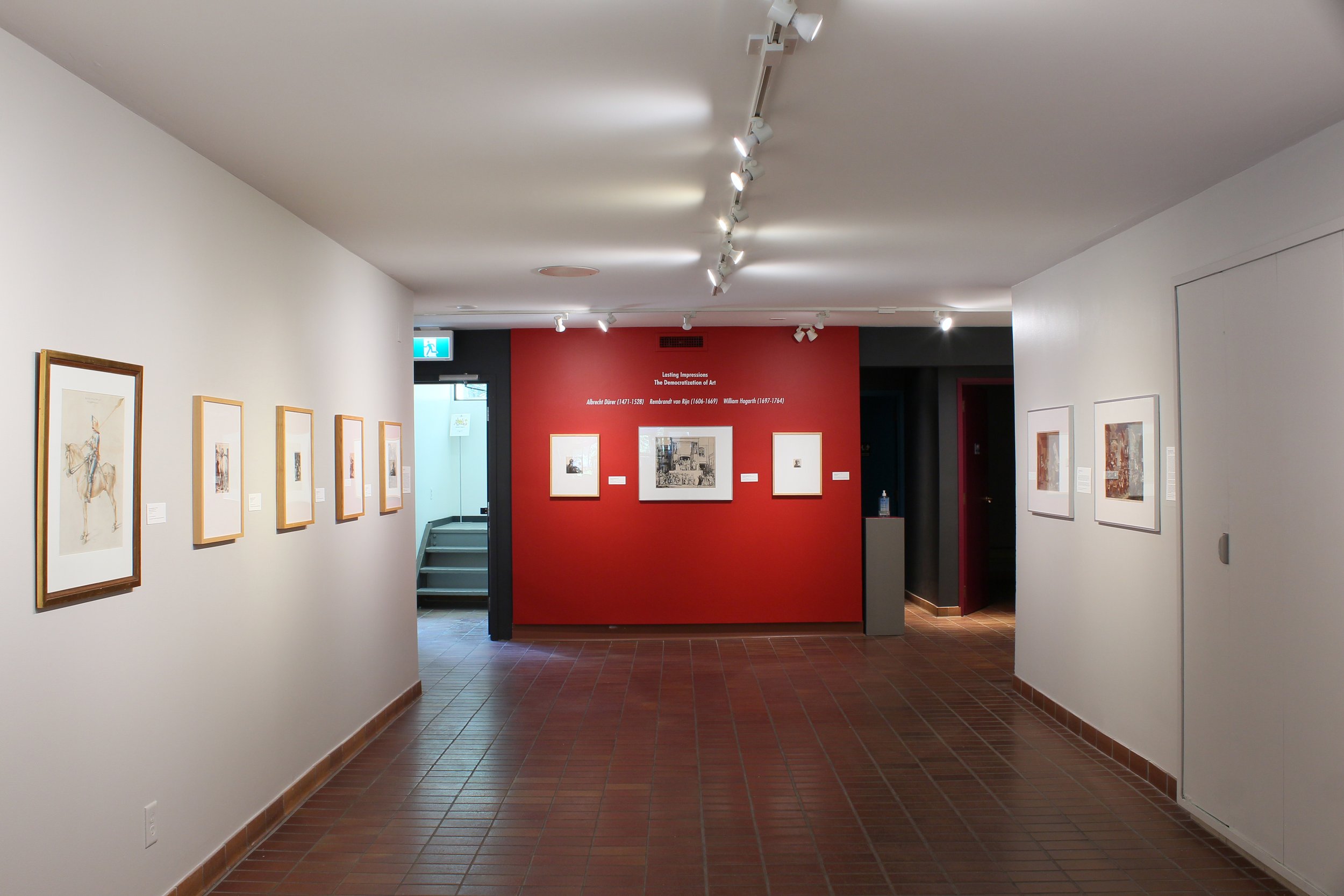
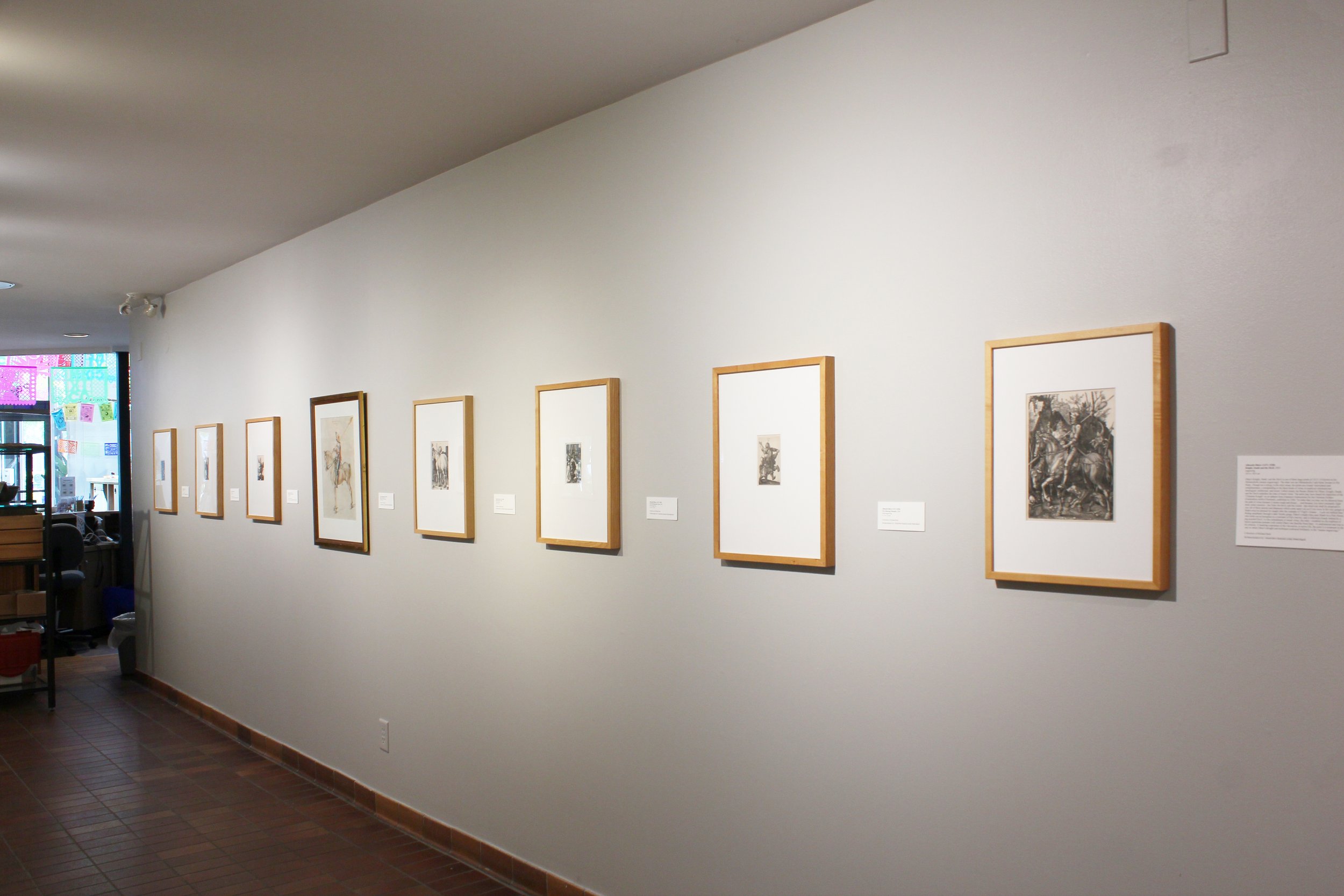
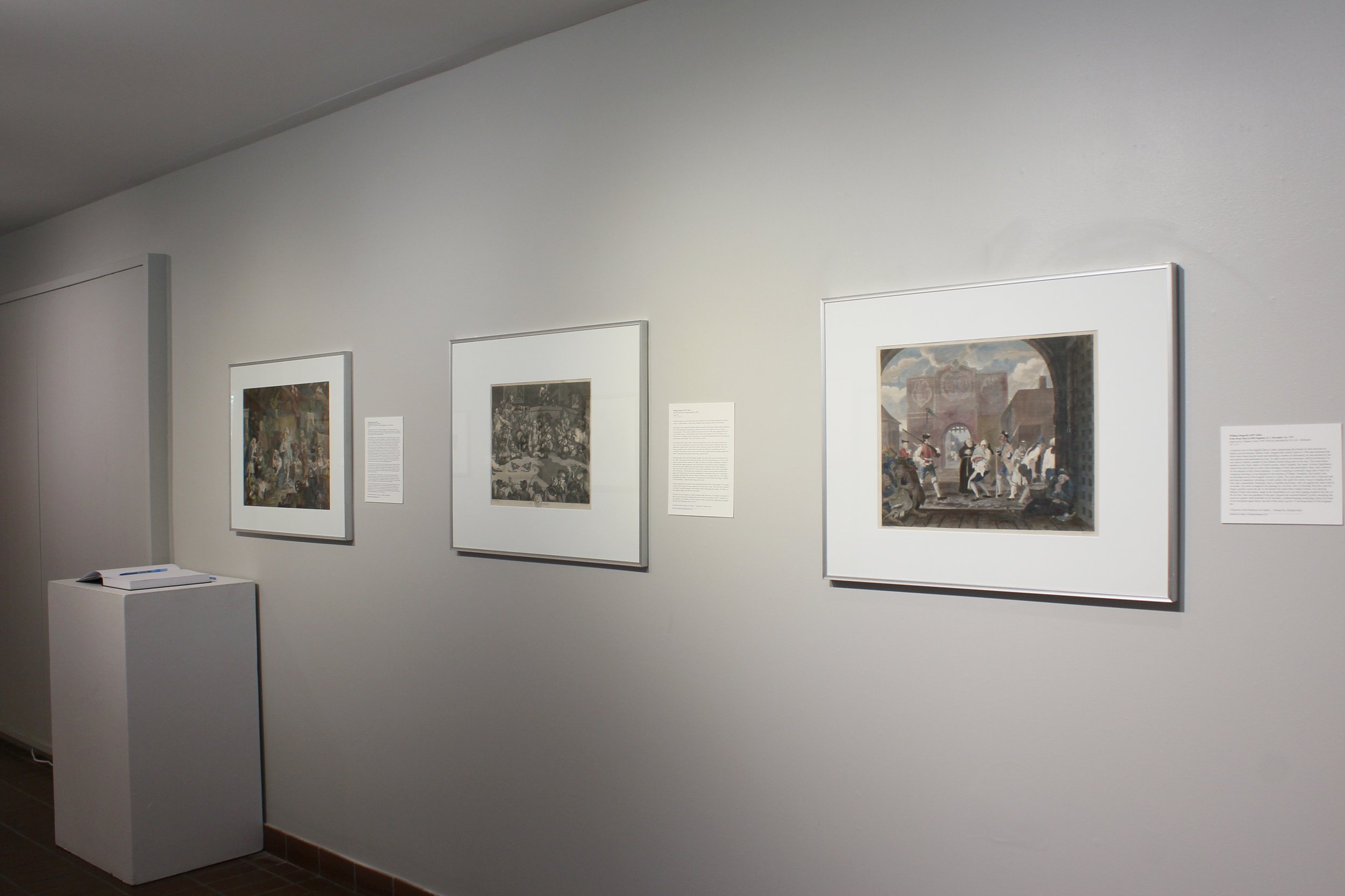
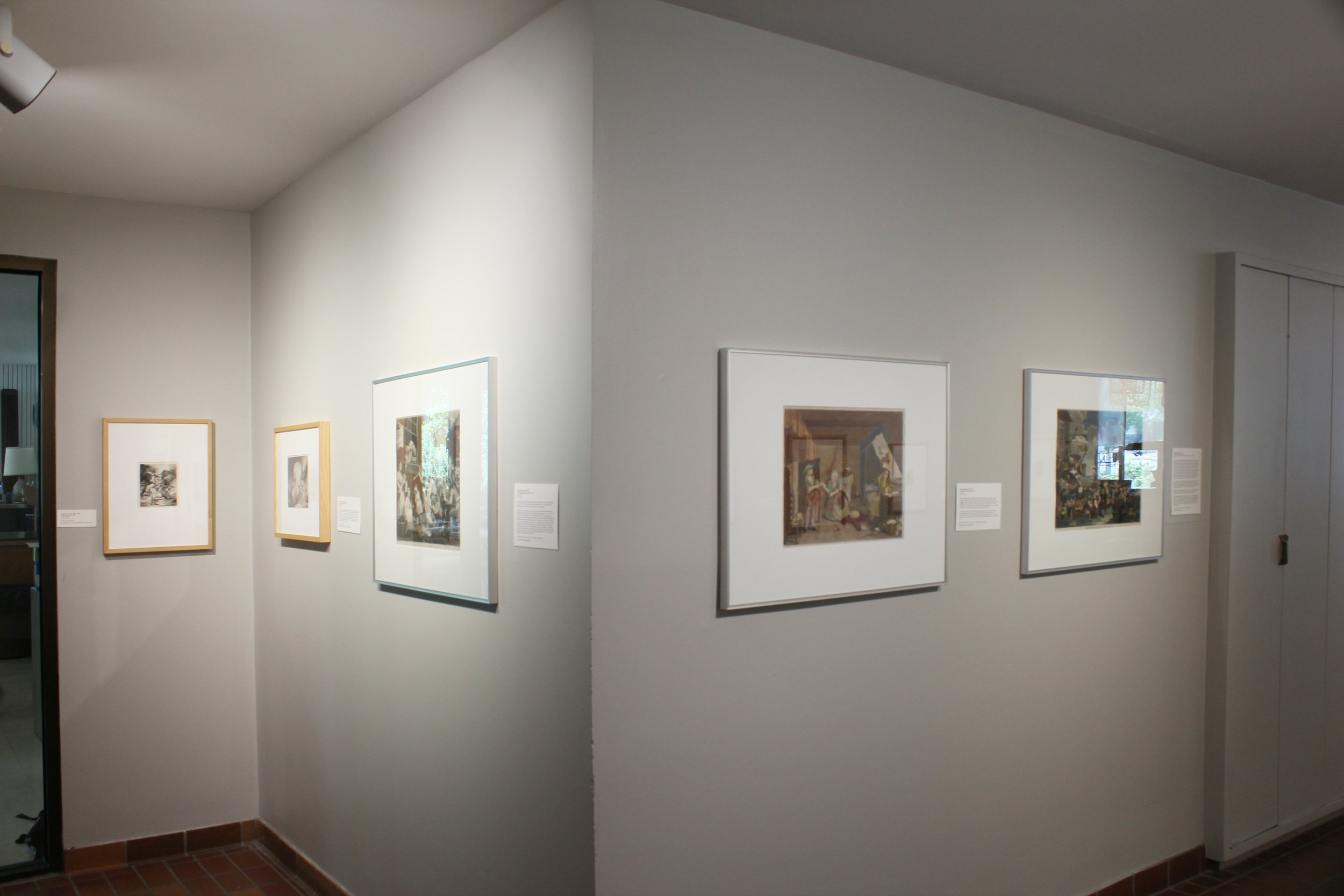
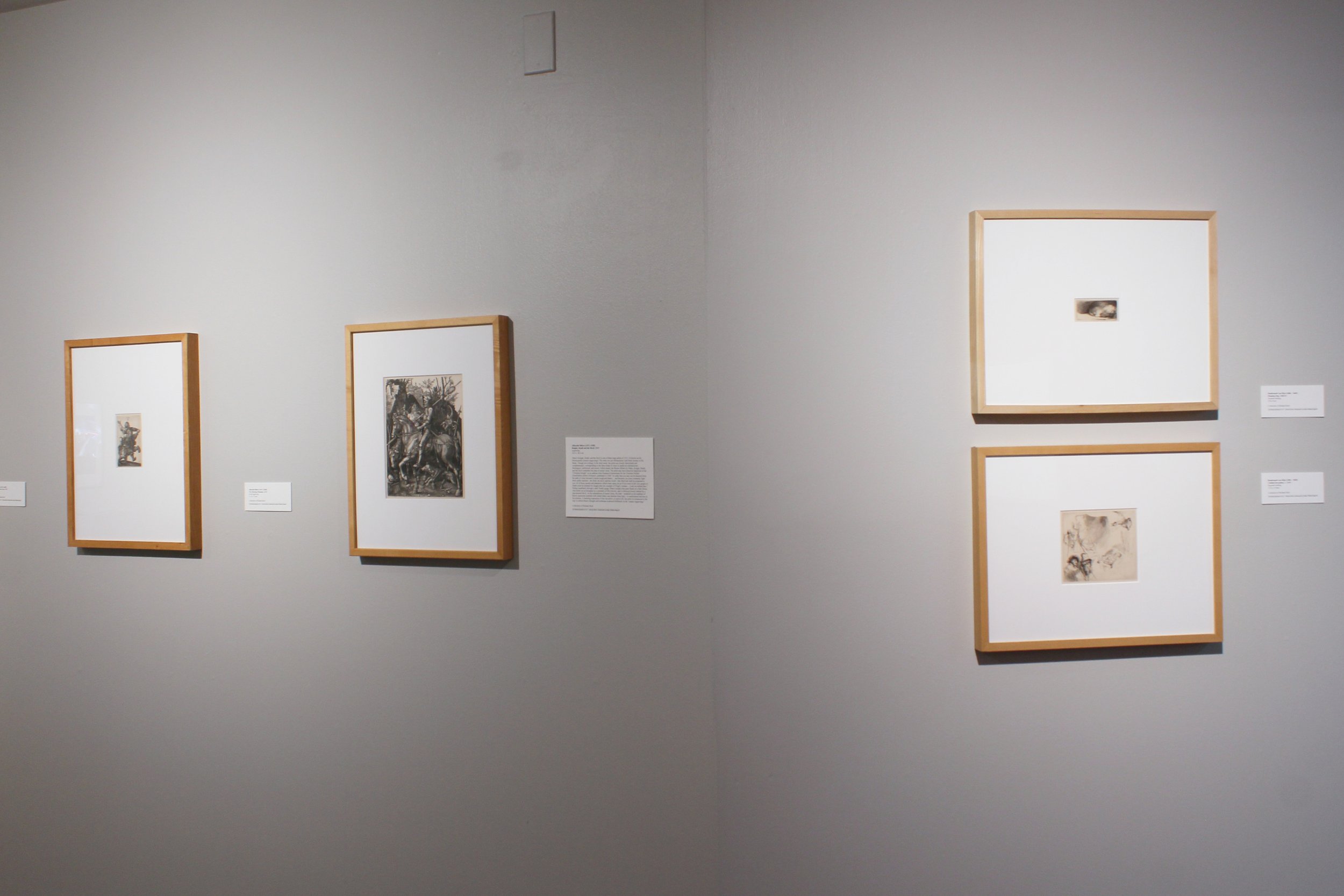
Exhibition Artist:
Albrecht Dürer (1471-1528)
Exhibition Artist:
Rembrandt Harmenszoon van Rijn (1606-1669)
Exhibition Artist:
William Hogarth (1697-1764)
WRITTEN BY PAUL CRAWFORD
Albrecht Dürer (1471-1528), Rembrandt Harmenszoon van Rijn (1606-1669), and William Hogarth (1697-1764)
Using the works of three of histories best known printmakers this exhibition explores how the art of printmaking became one of the most democratic disciplines of art by allowing more accessible to the general public. The rise of printmaking helped push the visual arts out into the public arena beyond the realm of the elite patrons and the church which had traditionally supported and commissioned the arts for their enjoyment and political will. Etching was first popularized in the 15th century tracing its origins to the armorer's trade, where it was used to add elaborate patterns to swords and armor, which was later adopted to mass-produce images on paper.
Despite living 500 years ago, Albrecht Durer remains one of the most famous and important printmakers in western art history, a reputation built on his incredible woodcuts printed in large editions and disseminated across Europe, firmly securing his place in the art historical canon. Dürer was the first German artist to portray peasants as esthetic subjects, capturing a growing self-confidence that had been stirring since the late 15th century. Dürer was also the first artist to both publish and copyright a book, and his 15 woodcuts depicting events from the Book of Revelations was widely circulated, thanks to the development of the printing press. Dürer's genius so dominated the art of the early bourgeois revolution in Germany that it has been called the Dürer epoch.
An innovative and prolific master, Rembrandt (1606 - 1669) is generally considered one of the greatest visual artists of all time, and the most important artist in Dutch art history.
Today it’s his dramatic Baroque paintings which have become synonymous with the cultural achievements and immense prosperity of the great Dutch Golden Age. Many people are surprised to learn that it was the 300 etchings and dry points he produced between 1626 and 1665 which were responsible for the international reputation he enjoyed during his lifetime. Due to the large number of works produced they were widely circulated throughout Europe and quickly became sought after by collectors. One of the secrets of his success was his ability to combine imagination and spontaneity with a scrupulous eye for every last fine detail prompting the great Italian painter Guercino, in 1660 to praise Rembrandt as a printmaker describing him as a “great virtuoso.” Interestingly Rembrandt also owned a large collection of prints by earlier masters including Albrecht Dürer.
Influenced by French and Italian painting and engraving, William Hogarth's works are mostly satirical caricatures, sometimes bawdily sexual, mostly of the first rank of realistic portraiture. He was the most significant artist of his generation and the first English-born artist to attract attention abroad. Hogarth invented the idea of a narrative series of prints, which told a story through a number of images, and he produced a significant number on "modern moral subjects" from prostitution to politics. His engravings often depict those trying to survive on the fringes of society and his prints are characterized by an incredible eye for detail (including many subtle puns and references), an often bawdy and ribald humor, and an ability to render striking and individual faces. In 1811 Charles Lamb writing about William Hogarth's work declared that Hogarth's images were filled with "the teeming, fruitful, suggestive meaning of words. Other pictures we look at; his pictures we read." After witnessing the widescale plagiarism of his first series of prints, A Harlot's Progress (1732) by competing engravers who produced cheap and inferior copies, Hogarth lobbied for the introduction of copyright protection for engravers. This was enacted in 1735, and became known as Hogarth's Law - it was one of the first of its kind in the world. ♦




